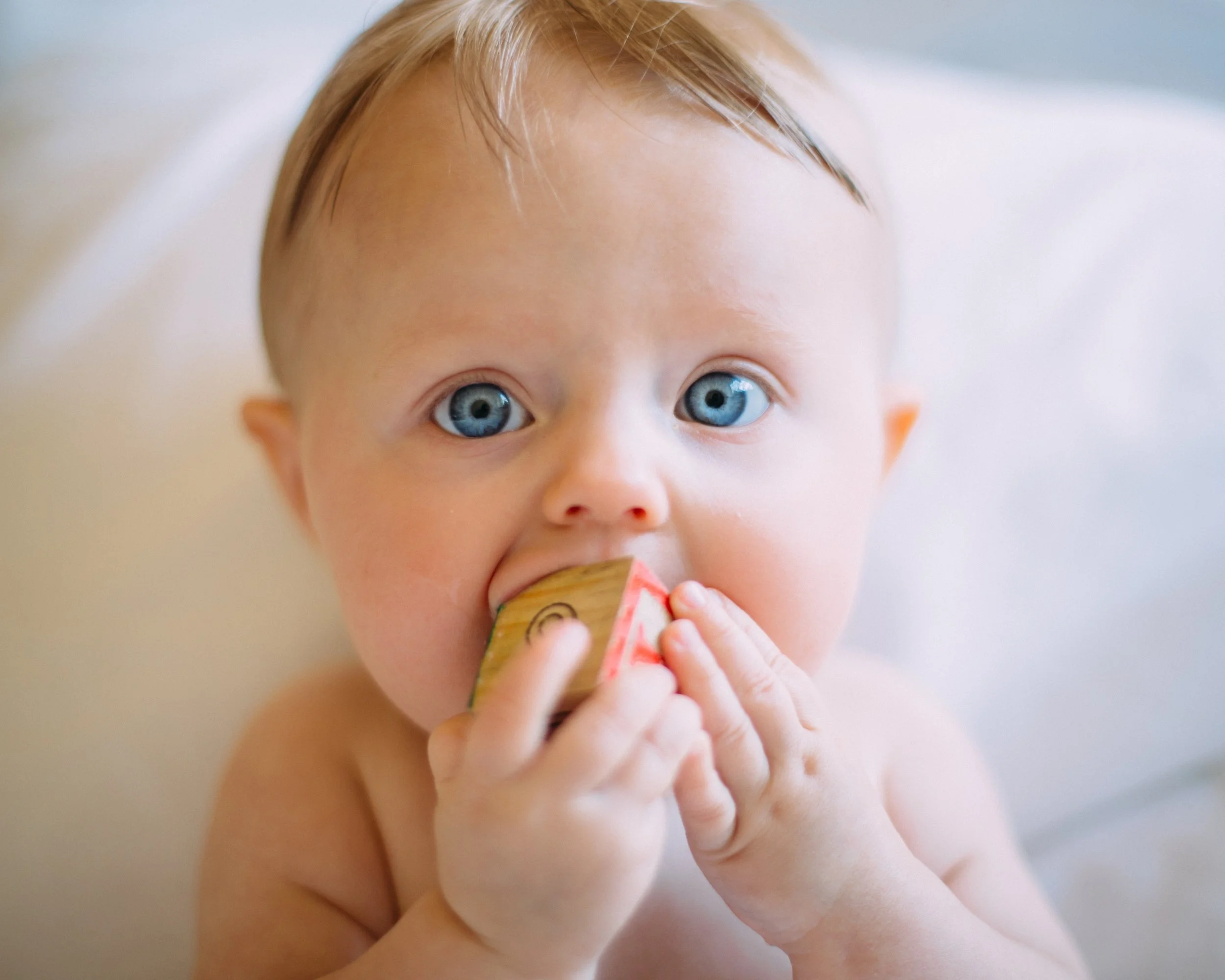The best carbs to start your baby on
When you're introducing solids to your baby, there are a few things to consider. Today we are going to look at carbohydrates (from now on I'll refer to them as carbs) and their effect on your baby.
Babies require a fat-dominant diet. Breast milk provides 50-60% of your baby's energy in the form of fat. This fat provides not only building blocks for brain development but also for whole body growth!
When a mother eats a high fat meal (I'm talking healthy fats here), vs a high carb meal, her breast milk actually changes in quality. We will cover this more in my upcoming blog post on high fat low carb diets for babies and children.
The fact that your baby requires a high fat diet (and receives it in the breast milk) is the first most important factor in introducing solids. If your baby's system is primed to digest fat, and convert fat into fuel, why is it a common recommendation to give white rice cereal as their first food? White rice cereal is one step away from being sugar, and is actually converted to glucose while it's still in your baby's mouth. Sure, that makes it easy to digest and yes, it is often fortified with iron (which babies need a lot of from 6 months), but it creates a blood sugar spike in your baby.
We can't be giving our babies an entirely fat-based diet, and they do need some carbohydrates. Carbohydrates in the form of vegetables provide a lot of vitamins and minerals that are not present in fats (just as there are some fat-soluble vitamins that you can't get from carbohydrates!). Plus, carbohydrates are typically high in fibre, which helps clean the digestive tract as it moves through.
This is our second point. The right carbohydrates provide lots of nutrients without disrupting your baby's blood sugar levels. The wrong carbohydrates can be very similar to giving your baby straight sugar, causing large spikes in blood sugar, and typically providing minimal nutritional value.
Lastly we need to consider your baby's microbiome.
When introducing solids, the type of foods you give your baby impact the type of bacteria that flourishes in their gut. This is true of all foods - carbs, fats and proteins. But high GI, sugary type carbohydrates have the most detrimental effect on our microbiome. They tend to promote the growth of candida, other fungal and yeast species, and pathogenic bacteria too. Considering how important gut health is to overall health, it makes sense to ensure your baby's gut health is happy from the get go.
How does carbohydrate digestion work?
Carbohydrate digestion begins in the mouth. The enzymes that break down your carbs are found in saliva. This is why simple carbs like white rice cereal can be converted into glucose before they have been swallowed! When glucose enters the bloodstream, insulin is produced to help transport the glucose into cells to be used as energy.
When you eat carbs, your blood sugar rises. Your body then produces insulin to deal with the sugar in the blood. Your body likes to have stable glucose in the blood, so insulin's job is to make sure the blood sugar stays within a stable range.
If you eat high GI meals, full of carbohydrates that are quickly converted into glucose, your body will produce high amounts of insulin to deal with the rapid rise in blood sugar. Once the glucose is cleared from your system, you will experience a rapid drop in blood sugar. With low GI carbohydrates and proteins that are slowly converted to glucose, the body can easily cope with the glucose levels and you tend to have much more stable blood sugars. These take longer to convert to glucose because they are difficult to digest, or simply they may have less carbohydrates per serving (think of vegetables that have a lot of water by weight).
When blood sugar is too high, you may have a baby who is irritable, jittery, and won't sleep (or stay asleep). When blood sugar is too low, your baby may get grumpy, irritable, and cry a lot.
What are the best carbs to start your baby on?
We have now established that we want to start our babies on carbs that are low or medium GI value and high in nutrition, as we know it helps maintain stable blood sugars and create a healthy microbiome. Which means you'll also have a happy baby!
Another thing you need to consider is ease of digestion. Your baby's digestive tract is still maturing and learning how to digest foods. Exposure to different types of foods (carbs, proteins and fats) stimulates the release of enzymes that help digestion. Too much too soon or difficult to digest foods could cause your baby some digestive discomfort - constipation, straining, or general tummy pains (which might keep them up at night, and nobody wants that!). Cooked carbohydrates are much easier to digest than raw.
Let's list some of the best carbs:
Sweet potato
Zucchini
Cauliflower
Spinach
Broccoli
Carrot
Pumpkin (high GI on it's own but read on to see why it is on the list)
One easy way to introduce carbs in a way your baby's system can handle is to mix some cooked vegetable with some healthy fats (such as avocado, bone broth, olive oil, or coconut oil), or a low GI with a high GI carb. My Fearless Foodies plan begins with bone broth as a first food to help stimulate a happy gut, and then it can be mixed with any carbs for a flavourful meal for your baby. I use this recipe.












